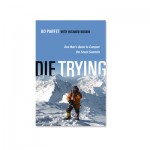I first met Richard Barrett about 15 years ago at a workshop that he was conducting in San Francisco. I was intrigued to attend the workshop, for the topic was about “Liberating the Corporate Soul“. Richard and I have maintained our friendship since our first meeting, and I have followed his evolution and the numerous books he has written over the years since our meeting.
In our interview for this podcast we are focusing on his newly released book entitled ” A New Psychology of Human Wellbeing–An Exploration of the Influences of Ego-Soul Dynamics on Mental and Physical Health.” Richard did a tremendous amount of research to write this book, but the content is well presented and is very useful in understanding the dynamics of our soul and ego.
Richard references the four dimensions of our souls energetic awareness. They are body, mind, science and psychology. “Your soul is a field of conscious awareness that identifies with your energy field. Is is who you are. You don’t have a soul, you are a soul. Your soul and the soul of every other human being is an individuated aspect of the universal energy field from which everything in our physical world arises, states Richard”. Richard was inspired to write this book as a result of reading “Toward a Psychology of Being” by Abraham Maslow.
I hope you enjoy this wonderful interview with author Richard Barrett who is filled with depth, insight and a wonderful grasp about how our ego and soul compete for our desire to become the aware, conscious and alive individuals we are entitled to become.
If you want to learn more about Richard Barrett you can click here to be directed to his website, or click here to be directed to his Facebook page.










